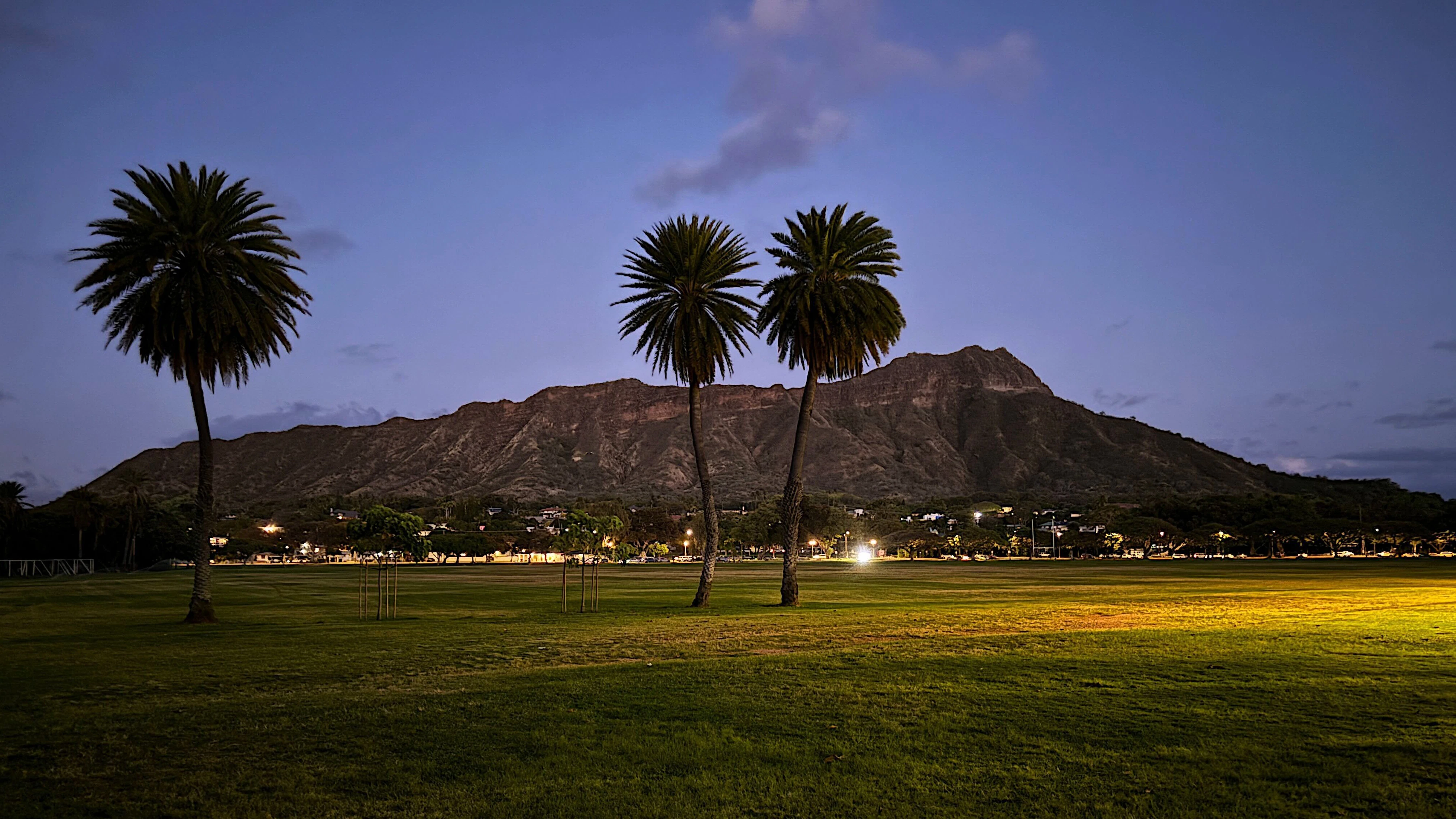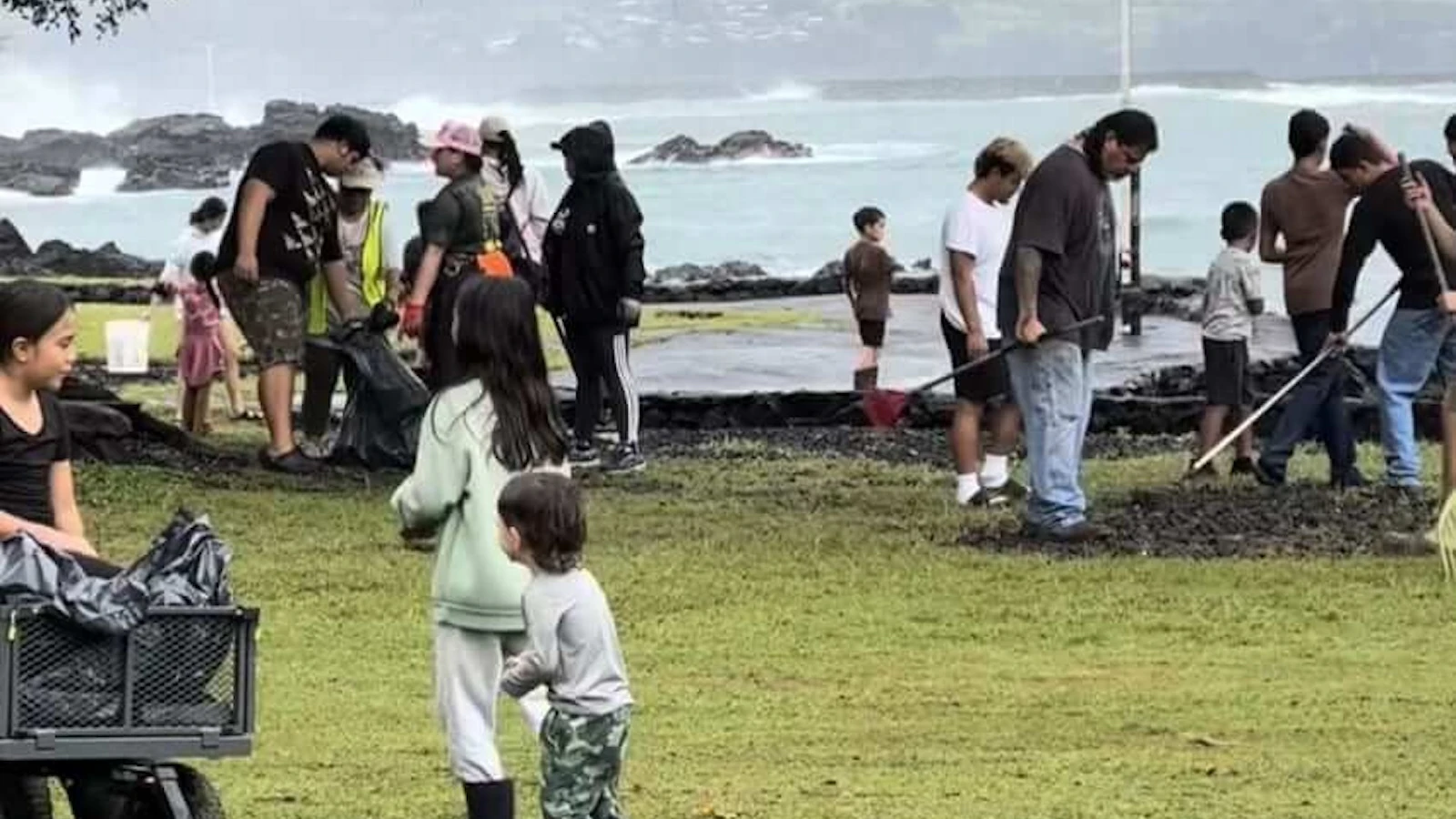Lifelong community servant and social justice advocate Louis “Lui” Hao was born in South Kona on Hawaiʻi Island in 1935 to Louis Kanoa Hao and Mona Doris Kaholo.
His father came from a long line of lawaiʻa (fishers) from Kalapana. His mother’s ʻohana worked as ranchers in the uplands of Puʻuanahulu. When WWII started, the ʻohana moved from South Kona to the ahupuaʻa of Waiākea in the moku of Hilo.
Hao enjoyed a happy childhood in Waiākea. Athletically gifted, he was an outstanding basketball player at Hilo High School and, after leading his team to the Territorial Championship in 1953 his senior year, Hao was voted MVP.
His athletic prowess was noted by recruiters at the University of Hawaiʻi at Mānoa and Hao was soon offered an athletic scholarship. After graduating from UH Mānoa in 1958 with a degree in sociology, Hao began his long career in government service working as a recreation director for the City and County of Honolulu.
An opportunity to pursue a master’s degree presented itself when Hao won another athletic scholarship to Indiana University. So, after six years with the City and County of Honolulu, Hao moved his young family to Bloomington, Indiana.
However, his enrollment at Indiana University was short lived; low on finances, he put his education on hold to support his family. He took a job at the Chrysler Transmission Plant where he worked for three years. While delaying his educational pursuits to work full-time, Hao nevertheless used his athletic skills in service to his new community, coaching basketball at the Carver Community Center in the predominantly Black community of Kokomo.
Hao eventually enrolled at Ball State University in Muncie, Indiana, and in 1971, he graduated with two master’s degrees: one in sociology and one in counseling. While attending graduate school, he worked as the minority group counselor at the Indiana State Employment Agency. The agency eventually reimbursed him for his graduate school tuition expenses, noting that his studies complemented his work as a counselor.
Armed with his graduate degrees and practical experience, Hao returned to Hawaiʻi. Preferring to work on the neighbor islands instead of on Oʻahu, he applied for a position on Molokaʻi and was hired as coordinator of the Progressive Neighborhood Program in Kaunakakai.
Hao went on to become administrator for the County of Maui, serving under four administrations – Elmer Cravalho, Hannibal Tavares, Linda Lingle and, briefly, under Kimo Apana – for a total of 25 years. In his capacity as a Maui County government leader, he also served on the Maui Economic Opportunity Council and the Maui County Planning Council.
During his tenure with Maui County, Hao also served on various community boards on his adopted island of Molokaʻi including as chairman of the board of trustees of Molokaʻi Hospital, and chair of the Molokaʻi Task Force, providing training through the State Comprehensive Employment Act and the federally funded Comprehensive Employment and Training Act program, which ran from 1973 to 1984. Hao was also a member of the Molokaʻi Chamber of Commerce.
In 1980, Hao made a run for the Molokaʻi/Lānaʻi seat of the newly established Office of Hawaiian Affairs (OHA) but lost to community activist Walter Ritte. Undaunted, he ran again four years later and, in 1984, was elected. Hao served as the OHA trustee for the islands of Molokaʻi and Lānaʻi for two terms through 1992.
After retiring from his position with Maui County in 1999, Hao left Molokaʻi and returned to Hilo. However, still an energetic and youthful 60-something, Hao did not settle into retirement. Upon his return to Hawaiʻi Island, he was appointed as East Hawaiʻi district manager for the Department of Hawaiian Home Lands (DHHL) – a position he held until 2017.
As he did everywhere he had lived, Hao was actively involved in his community. He was a member of Hale Pule o Ka Hōkū Ao Mālamalama, the Keaukaha/Panaʻewa Farming Association, Hale o Nā Aliʻi, Ka Lāhui Hawaiʻi, and a board member of Hui Mālama Ola nā ʻŌiwi, a Hilo nonprofit focused on community health and wellbeing.
Shortly after returning to Hilo, Hao, who was divorced from his first wife, Constance, rekindled a friendship with childhood acquaintance Leifi “Puna” Pratt, an ordained minister, musician, kumu hula and resource instructor in the Department of Education’s Kūpuna Program. The couple married in 2004.
In 2018, after retiring from DHHL the previous year, Hao, then in his 80s, was made the executive director of Hui Mālama Ola nā ʻŌiwi after serving as a board member for six years. Hao held this position through the pandemic, stepping down in 2023 at the age of 88.
Following his third retirement, Hao and Leifi busied themselves in their home garden, remained active in their church (Hale Pule o Ka Hōkū Ao Mālamalama) where Leifi served as a kahu and Hao as an assistant kahu (hope kahu), and in their community.
With his background in social services and aloha for his community, Hao was a longtime champion of economic and social change in Hawaiʻi. He was concerned about the growing diaspora of Native Hawaiians and felt that the most pressing need of our community was to return Hawaiians to the ʻāina.
Hao was an advocate for diversified agriculture, aquaculture and vertical farming using techniques such as hydroponics to achieve economic stability, sustainability and food security.
He also advocated for improved educational opportunities and the establishment of high-tech industries in Hawaiʻi to lessen dependence on the military and tourism industries; for improved state investment in infrastructure for housing, economic development and social services; for incorporation of Hawaiian culture and values in the correctional system; and for OHA to be involved in the management of Maunakea to ensure its protection.
Hao was predeceased by his wife, Leifi “Puna” Leolani Keonaonaʻokupupio Pratt-Hao. He is survived by his daughters Bambi Lynn Kanani (Calvin) Eaton-Hao, Tracy Ann Kapua Hao, Lesley Mae Kalei (Matthew) Brittain, and Terry Lee Kala (Carl) Chapman; by his brother Lawrence K. Hao; by his former wife, Constance I. Hao; and by his 12 grandchildren and 19 great-grandchildren.
“As a father, grandfather, and great-grandfather, I can speak from my experiences raising keiki,” Hao wrote in a 2018 message to Hui Mālama Ola nā ʻŌiwi beneficiaries shortly after his appointment.
“One of the most important things we can pass along to our keiki is values. Of these values, I want to highlight the importance of respect. As a community, we need to respect our kūpuna, the ʻāina, and all that supports us. Families have to love each other and respect one another. If we take care of each other, the ocean, and the ʻāina, we will be a healthier and happy people.”
This article is reprinted with permission from Puanani Fernandez-Akamine, “A Life of Service and Advocacy for Native Hawaiians," OHA's Ka Wai Ola newspaper, November 2025, Vol. 42 No. 11. Some information was gleaned from a 2019 article published in Ke Ola Magazine by Marcia Timboy. Read more at kawaiola.news.
For the latest news of Hawai‘i, sign up here for our free Daily Edition newsletter.





